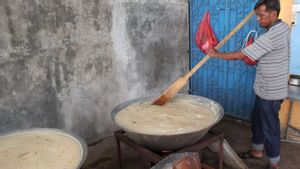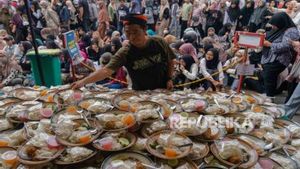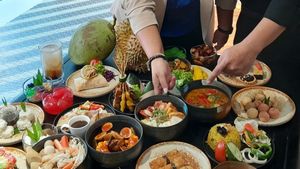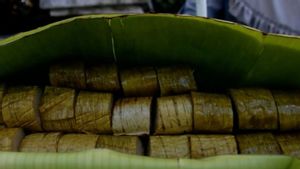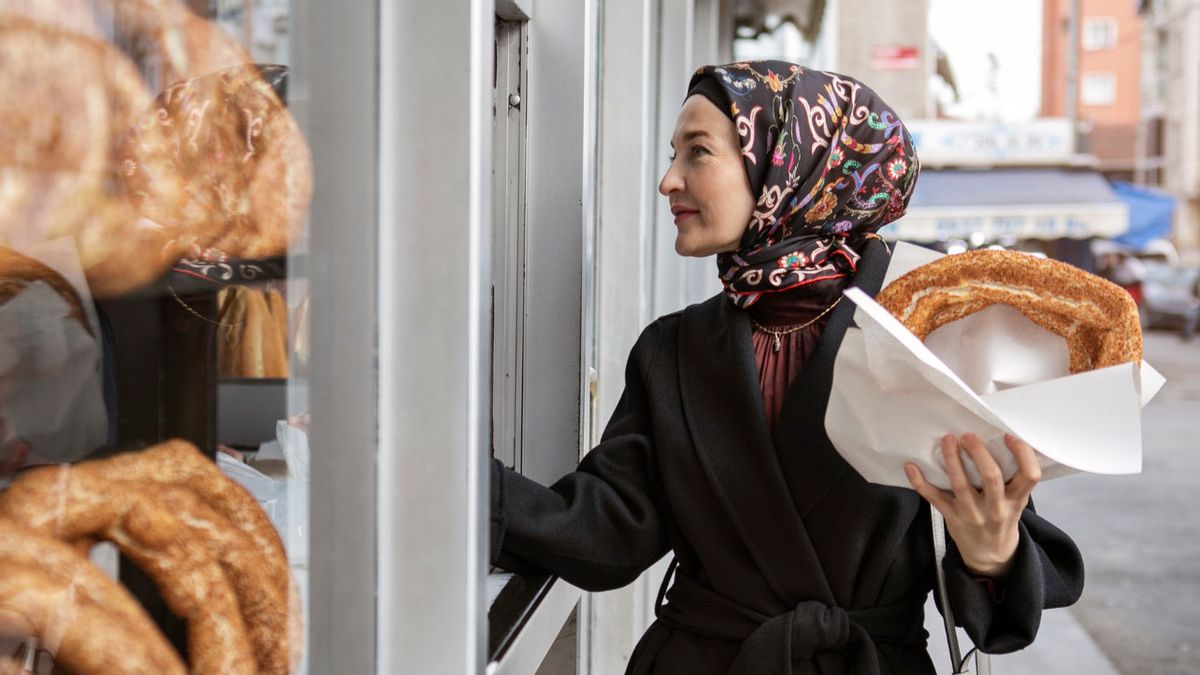
YOGYAKARTA Various kolak variations certainly remain the favorite takjil when breaking the fast. But without any sweet drinks feel lonely. For that, it's also fun to know and taste various special Ramadan foods from various regions in the archipelago. Around your house, there may be a lot of special foods that are only found during the holy month, is this among them?
Bongko kopyor is a combination sweet food from jackfruit and kopyor coconut. This snack is famous in Gresik, East Java. In addition to emitting jackfruit flavors, the soft texture of kopyor coconut is united with pearl sago porridge, bananas, and bread. This material is wrapped into one using pusang leaves and then steamed.
In Yogyakarta, you can certainly find many markets that are opened in certain villages and sell takjil a lot. One of the takjil you miss, is kicak. Kidak has a sweet taste mixed with thickness from coconut scarcity. In the past, the kicak was made from cassava. Currently, more kicak is sold made of glutinous rice. Launching the official website of the Ministry of Tourism and Creative Economy of the Republic of Indonesia, Monday, March 18, the first kicak was made in the 1970s by Mbah Wono which was previously sold in the afternoon market, Kauman.
Unlike ordinary noodles, glusor noodles come from Bogor, which is the iftar menu. This food is special in the month of Ramadan because it is made from cassava or aci flour. The texture is slippery, so it is called the glusor because it is easy to swallow when it arrives at the throat. Apparently, the glusor noodles have similar ingredients to the pentil noodles that are popular in Bantul, Yogyakarta. Both are made of cassava, but have peculiarities in every processing method.
This takjil, is said to have existed since the 16th century in the people of Banten. Ketan bintul is made of glutinous rice and is given a sprinkling that is spiced with a mixture of spices. Usually, how to enjoy solid bintul is matched with a mouthwash of meat. There are also those who eat it together with beef empirical meat slices.
Barongko is a typical Bugis food, Makassar. The snack that is steamed and wrapped in banana leaves has a combination of sweet and savory flavors. The texture is soft, so it is suitable for breaking the fast.
Barongko is made from bananas, eggs, coconut milk, sugar, and salt. Bananas that have been smoothed are mixed with other ingredients, then wrapped in banana leaves, and steamed. In addition to being enjoyed warmly, the barongko is no less delicious if enjoyed by cold or after being stored in a refrigerator.
In contrast to putu cakes, in general, which are cooked in small pieces of bamboo. But this putu bowl from the Riau Islands, made from rice flour and scarring coconut, but steamed with bowls from pusang leaves. Surprisingly, the contents of putu are sugar or coconut sugar which is legit.
There were many mosques in Aceh before breaking the fast. This bun can also be purchased in the culinary village which is held during Ramadan. This bun is brownish with a strong spice aroma. Reportedly, this dish is influenced by Indian cuisine because it combines spices in one warm dish.
Dewur campiun is a typical food of Bukittinggi, West Sumatra. Uniquely, this porridge is actually a mixture of various types of porridge. Such as porridge, green beans, candil, banana kolak, ketan, and kolang-keling. This mixture of porridge, watered sudah sampah yang surah. If it's not sweet enough, you can ask for more red sugar sauce.
관련 항목:
Unlike the previous snack, this special Ramadan food, comes from Pontianak, West Kalimantan. It is called Sotong Pangkong which is made from squid and then roasted. However, before roasting, squid is dried to dry first. It seems that the texture and taste of cut pieces are similar to the burnt pempek karena there is a sea aroma that is served along with peanut spice or sweet spicy sauce.
Is there anything from the list of special Ramadan foods that you have tasted? Don't worry if not, you can still enjoy the delicious takjil available around where you live.
The English, Chinese, Japanese, Arabic, and French versions are automatically generated by the AI. So there may still be inaccuracies in translating, please always see Indonesian as our main language. (system supported by DigitalSiber.id)


